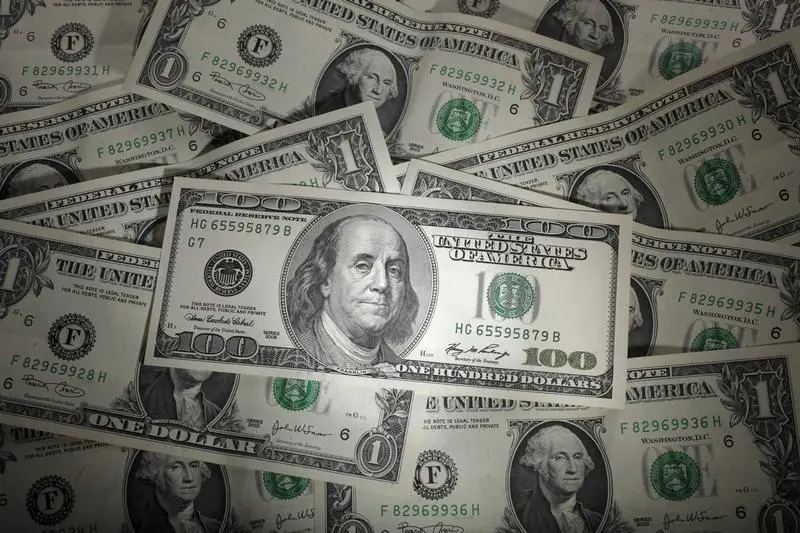PHOTO
SINGAPORE/LONDON - The dollar slipped on Monday, with the threat of currency intervention from Japanese authorities and a government-driven rally in China's yuan weighing on the U.S. currency.
The Japanese yen was slightly higher on the day and last stood at 151.29 per dollar, having bottomed at a four-month trough of 151.86 last week that left it within striking distance of a 32-year low near 152 per dollar hit in 2022.
Japan's top currency diplomat said on Monday the yen's current weakness did not reflect fundamentals, adding to the rhetoric of government officials who have stepped up warnings in recent days over the currency's decline.
The yen has dropped despite the Bank of Japan hiking interest rates out of negative territory last week. Traders think rates in Japan will remain low for some time and therefore the big interest rate gap with the U.S. will stay in place, boosting the appeal of the dollar.
"Japanese officials' verbal intervention is making 152 a very strong near-term resistance for dollar/yen," said Carol Kong, a currency strategist at Commonwealth Bank of Australia. "I think that's keeping dollar/yen from moving substantially higher."
The dollar index was last down 0.1% at 104.35, having clocked a weekly gain of nearly 1% last week.
China's yuan was the most notable mover in FX markets on Monday, climbing roughly 0.3% in onshore markets to 7.21 to the dollar, while its offshore counterpart climbed around 0.4%.
Sources told Reuters that China's major state-owned banks were seen to be selling dollars for yuan in onshore markets on Monday, helping reverse a sudden fall at the end of last week.
The Chinese currency has been pressured by growing market expectations of further monetary easing to prop up the world's second-largest economy.
"The support to the renminbi (yuan) has helped to limit Friday's advance of the dollar, as has some quite aggressive verbal intervention in support of the yen from Japanese officials," said Chris Turner, global head of markets at ING.
European currencies regained a small amount of ground on Monday, after dropping last week as investors bought the dollar on the basis that the Federal Reserve seems in no rush to ease rates compared to some of its peers.
Bets for a June rate cut by the European Central Bank and the Bank of England (BoE) have risen substantially after the Swiss National Bank became the first major central bank to lower borrowing costs last week and BoE Governor Andrew Bailey told the Financial Times that rate cuts "were in play" this year.
The euro was last up 0.1% at $1.0818, climbing off a near three-week low. Sterling rose 0.08% to $1.2611, having slid more than 1% last week.
Elsewhere, the Australian dollar rose 0.21% to $0.6528.
Bitcoin climbed 5.6% to $67,030. It has fallen around 9% since hitting a record high above $73,800 on March 14.
(Reporting by Rae Wee in Singapore and Harry Robertson in London; Editing by Shri Navaratnam, Jamie Freed and Sharon Singleton)





















